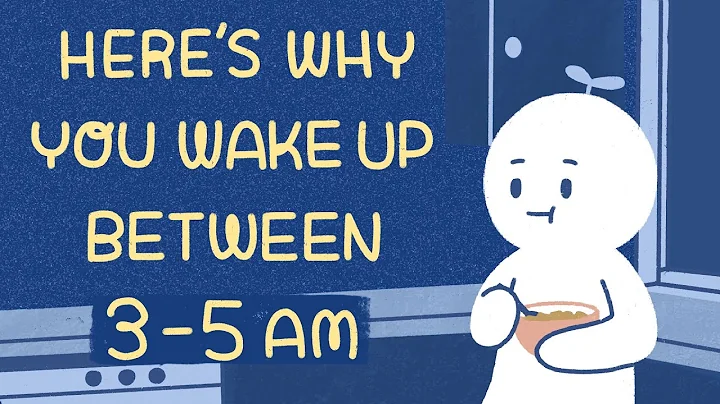
In " "Computers need to anti-virus, update and upgrade software, what about the human brain?" ", Jingdu Jun mentioned that the human brain is similar to a computer, just like a computer cannot provide specific functions without specific software, and will suffer the consequences if it is poisoned. , if the mental program is defective or contaminated, it can easily lead to stupid and wrong decisions.
The problem is, how to detoxify and upgrade the human brain? Why do smart people tend to do stupid things even though their brains seem to be in good condition?
This requires us to have a deeper understanding of the mind. The triple mental model tells us that the human mind consists of three parts: autonomous mind, algorithmic mind, and reflective mind. The abilities of each part are different, and the combined performance is different, either smart, ordinary, or stupid.
What are the characteristics of each of the three triple minds, and how do they cooperate with each other? How to improve it in a targeted manner? Regarding these issues, readers can refer to the entry "717: Triple Mind" in Jingdujun General Knowledge Dictionary. The full text is attached, I hope you can gain something from it.
Intensive reading
"717: Triple Mind"
Pre-thinking
Please read the following material about Mensa members, and think: What inspiration does this give you?
Mensa Club was founded in the UK in 1946. It is the world's most well-known club for high-IQ people, with branches in more than 50 countries around the world.
has very strict membership requirements, including an IQ test, and only accepts people with high IQs who are "standing in the top 2% of human IQs". It is said that the average IQ of Mensa Club members is 148, while the Nobel Prize winner in physics, Richard Feynman, has an IQ of only 120.
The Mensa Bulletin, the American Mensa monthly magazine, once publicly stated that people with IQs below 105 do not need to join the membership because they would not be able to understand their chatter anyway.
But such a high-IQ group is not as rational and contributory as everyone expects. Psychologist Keith Stanovich once surveyed members of the Canadian branch of Sansa and found that 44% of them believed in astrology and 51% believed in "circadian rhythm theory."
Astrology is familiar to everyone and has entertainment value, but it is not a science; while circadian rhythm theory is an old almanac in a new packaging.
Circadian rhythm theory believes that human body, emotions and intelligence all cycle according to certain laws. As long as you find the pattern, you can predict what state this person will be on on what day, and what he should or should not do, for example, "Today is a good time to travel and avoid getting married."
Although it adds the word "physiological" and uses the sine wave curve to analyze people's destiny, it looks very scientific, but it is still pseudoscience. This is not something that people with IQs over 105 can do. For example, can you imagine that physicist Hawking would open a horoscope column?
There are more than 120,000 Mensa members worldwide, but in the 70 years since its establishment, only about 100 are famous.
29 of them are people in the entertainment industry; there are only 4 scientific researchers, all of whom are studying biology or biochemistry; the rest are mostly cartoonists, writers, lawyers, athletes, and entrepreneurs. No member has won the Nobel Prize for or . The biggest award these people have ever won is probably the Oscar.

Q1: What is the triple mind?
A:
1, Triple layer mental model (Three layer mental model), proposed by American psychologist Keith Stanovich, refers to:
The human mind includes three parts: autonomous mind, algorithmic mind, and reflective mind .
is similar to the multiple intelligence model. The triple mind is also a thinking model that allows us to have a deeper understanding of how the mind works, how it affects the mental model , and ultimately how it affects decision-making and action.
2, Why do smart people do stupid things?
This question is of great interest to Stanovich, and it is also one of the starting points for his research on mental issues.
Preliminary thinking mentioned that Stanovich conducted a test on members of the Canadian branch of Mensa and found that 44% of them believed in astrology and 51% believed in "circadian rhythm theory."
Astrology and circadian rhythm theory are not falsifiable and are not scientific. It would not be surprising if ordinary people with insufficient scientific literacy believe it. But as a Mensa member of the top 2% of people with high IQs, it’s a bit surprising to believe this.
In fact, there are far more stupid things that smart people do, including falling into simple scams, believing in pyramid schemes, and thinking that they can accurately predict the stock market.
In Stanovich's view, the traditional IQ theory is flawed. IQ is not the whole mind, but only a part of it.
readers all know that IQ is only one factor that affects the results, not all. But because people with high IQs are very smart and understand, learn and master quickly, as we have seen in programs such as ", the most powerful brain ", we are deeply impressed. Therefore, we tend to overestimate the impact of IQ on outcomes.
To study this issue, Mensa is a good example. Because Mensa’s membership criteria are very pure, only considering IQ and not other factors such as status, income, occupation, etc.
If the IQ factor plays a far greater role than other factors, then Mensa members should achieve success far beyond that of ordinary people, both in terms of probability of achievement and value of contribution, but this is not the case.
Today’s entry, Jingdujun introduces the threefold mind, for readers’ reference to improve their mental management abilities.

Q2: How to understand the triple mind?
A:
1, identifies the triple mental characteristics .
Stanovich’s three-fold mental characteristics are briefly introduced as follows:
① Autonomous mind
Autonomous mind is the mind we acquire through evolution and the concealment and internalization of knowledge and skills.
For example, being afraid when seeing wild beasts and swallowing when seeing delicious food are built-in genetic programs and are instinctive minds acquired through evolution.
For example, cycling and swimming skills, after long-term training, form operant conditioning , which are implicit and internalized into the mind without thinking, and are close to instinct.
The characteristics of autonomous mind are autonomy, automaticity, quick response, and no need to think.
② Algorithmic Mind
Algorithmic Mind is also commonly known as intelligence, and is divided into two categories: one is fluid intelligence , and the other is crystallized intelligence .
Fluid intelligence is a physiologically based cognitive ability related to basic psychological processes. It is also an ability measured by IQ tests in the traditional sense, such as perception, memory, computing speed, logical reasoning, etc.
Fluid intelligence is a basic human ability. Individual differences are greatly affected by talent and less affected by education and culture. Fluid intelligence is closely related to age. For most people, fluid intelligence development reaches its peak after the age of 20, and decreases with age after the age of 30.
Crystallized intelligence refers to the cognitive ability based on acquired experience in practice. For example, the acquisition of language, mathematics, science and other knowledge abilities is mainly affected by acquired learning. Crystallized intelligence is affected by experience and mainly manifests itself in the ability to use existing knowledge and skills to absorb new knowledge and solve new problems.
Crystallized intelligence develops throughout life and does not decrease with age. It only develops at a slower pace after the age of 25, and some of these skills become useless under new social conditions.
algorithm mental features are based on algorithms. In terms of algorithm efficiency, Jingdu Jun mentioned that different algorithms have significant differences in efficiency.
Similarly, everyone’s algorithmic mind is also significantly different. Some are determined by nature and some are determined by nurture. In Jingdu Jun’s opinion, acquired influence is greater.
readers can think about it. Hundreds of years ago, the sages had outstanding fluid intelligence, but they did not master the specific algorithms of today's people. As far as a specific field is concerned, the final thinking quality and efficiency may not be as ordinary as today's fluid intelligence, but they mastered the corresponding crystals. Average intelligence.
Crystallized intelligence is highly correlated with the number of knowledge crystals mastered. This is also the starting point for the compilation of Jingdujun General Dictionary, allowing readers to increase their knowledge by mastering the common sense concepts of necessary subjects.
③ Reflective mind
Reflective mind refers to the mental processing process that monitors the human mental process as a whole and helps to implement decisions and judgments. It is a manifestation of rational thinking.
makes an analogy, just like a camera behind you, observing your every move from a third party perspective.
The characteristic of reflective mind is introspection, which is manifested in metacognition, reflective ability, etc. In thinking hat , the blue thinking hat focuses on the use of reflective thinking.
The above are the brief characteristics of the triple mind. Readers can combine related entries to further expand their thinking.
2, Understand the mental processing process .
To understand the mechanism by which smart people make fools, we need to further understand the mental processing process, which means: how the three minds work together.
Let’s look at a case first. For example, when you are driving on the highway and are cut in line by a fast-moving car, you brake suddenly and are very frightened.
Your autonomous mind will react immediately by scolding the person who jumped in line and trying to pass him. For autonomous mental responses, your reflective mind monitors them. Your reflective mind knows that your goal is to drive home safely, not to be vindictive.
Therefore, the introspective mind drives the algorithmic mind and thinks about whether your autonomous mental reaction is reasonable: Your driving skills are average, how dangerous is it if you overtake? If the other party cuts in line like this, could it be a poorly educated person, an angry road rager, or even a drunk driver? ...
After some calculations, your algorithmic mind came to the conclusion: the rational approach is not to curse, not to overtake, continue to drive at a constant speed, keep a distance from the person who jumps in line, and monitor the other person's possible dangerous actions for emergency response.
In this simple case, readers can feel the three-fold mental cooperation process.
's autonomous mind is automatic and spontaneous, and responds quickly. On the one hand, it brakes suddenly and generates a scare signal to remind us to deal with the emergency of being jumped in line; on the other hand, it gives suggestions for the next reaction, scolding the other party and overtaking.
In the above reaction, the autonomous mind plays an important role. In the blink of an eye, if algorithmic mind and reflective mind are required to calculate slowly (relative to the autonomous mind), we may not be able to escape danger.
However, the suggestions given by the autonomous mind are a mixture of good and bad, and need to be evaluated by the algorithmic mind and suppress the bad suggestions of the autonomous mind. The algorithmic mind is relatively slow, but it can comprehensively analyze the current situation, simulate and calculate the pros and cons of various countermeasures relatively rationally, and is better equipped to make high-quality decisions.
This kind of simulation calculation is practiced in the brain's imagination space (such as imagining possible problems after overtaking, the reaction of queue jumpers, etc.), rather than actual execution.
The problem is that high-quality decision-making requires cost and effort. Especially when faced with complex problems, clarifying the problem and making prudent judgments require a large amount of cognitive resources.
If the autonomous mind is like "flying fiercely" and can be ignited by a spark, then the algorithmic mind is like "slow Zhuge" and needs to be pushed and moved slowly.
Keeping the algorithmic mind working hard and on the right thinking path is the reflective mind working. The introspective mind will remind the original intention and goal (such as driving home safely instead of fighting), allowing the algorithmic mind to generate calculation power.
At the same time, if the algorithmic mind encounters difficulties and makes mistakes, the introspective mind will also send a signal "something seems wrong, the results are not as expected..." to remind the algorithmic mind to recalculate.
In this process, if the triple mind does not cooperate properly, many problems may occur.
For example, some people have weak introspective minds and are unable to mobilize their algorithmic minds and suppress the adverse reactions of their autonomous minds. For example, if your driving skills are average and you overtake for the sake of grudge, a traffic accident will occur.
For example, some people have flaws in algorithmic mental calculations and cannot simulate and calculate all situations. For example, we did not estimate the low probability of drunk driving by jumping in line, and we did not expect that a traffic accident would occur due to a fight with a drunk driver.
From the triple mental model, we can know the characteristics of the triple mental processing process:
The autonomous mind is based on instinct and intuitive thinking. All information must first pass through the autonomous mind, which is similar to the brain's border guard and is the first reaction.
The algorithmic mind is more concerned with execution, reasoning, and calculations, while the introspective mind is the core of rational thinking. It observes calmly and suppresses, warns, and adjusts the algorithmic mind in a timely manner.
understands the triple mind. From a mental perspective, it is not difficult for us to understand: Why do smart people do stupid things?
Research has found that rationality (reflective mind) and intelligence (algorithmic mind) have a weak correlation overall. In other words, smart people may not be rational. Intelligence and rationality are two independently developed abilities.
Traditional IQ tests only measure algorithmic thinking (mainly fluid intelligence) and do not include any content on reflective thinking. People with high IQs who pass IQ tests are prone to do stupid things if they reflect on their low mental level.
According to the triple mental processing model, cognitive scientists have reached a shocking conclusion: smart people can only perform well when they are told what to do.
If a person is compared to a car, IQ is like the speed of the car, while rationality determines the direction of travel.

3, optimize mental processing .
After understanding the triple mental model, we can make some optimizations in the mental processing process in order to make the best possible decisions and reduce the probability of doing stupid things.
In this regard, we can start from two aspects:
① Dealing with the cognitive miser
The principle followed by the human brain is: if you can use your brain, don’t use it, and don’t use your brain when you should use it. This is the innate information processing characteristic of the human brain. The brain is stingy in its use of cognitive resources and likes to take shortcuts, abbreviated as a "cognitive miser."
Human beings are cognitive misers most of the time. This is the result of evolution, because the brain is an extremely energy-consuming organ, and the human body has limited energy storage, so try not to use it if you can.
Our brain only accounts for about 10% of our total body weight, but it consumes close to 30% of our energy. If the consumption of resources is too high, human survival will be threatened. From the perspective of survival, our instinct is to reduce energy consumption, especially using our brains less.
As far as the triple mind is concerned, if the brain can use its own mind, it should try not to use the algorithmic mind and the introspective mind. If you have to use the algorithmic mind and the introspective mind, run as little as you can, and it's best to stop as soon as possible.
Common practices of cognitive misers are as follows:
First, attribute replacement: replace complex ones with simple ones, intentionally ignoring complexity.
The second is the vivid effect: it is easy to be attracted by fresh cases and ignore statistical data.
The third is the framework effect : essentially the same but superficially different problems, with different responses.
The fourth is the anchoring effect: the decision result is anchored by a non-logical value.
The fifth is accessibility bias: content that is easy to extract is used as the basis for decision-making.
Sixth is the inaction bias: don’t change if you can, and give priority to maintaining the status quo.
The above is not exhaustive. Most of the various cognitive biases introduced by Jingdujun General Knowledge Dictionary are followed by cognitive misers. If we can identify and detect manifestations of cognitive miserliness, we can remind ourselves and mobilize our introspection and algorithmic mind to deal with it.
② Optimize mental programs
According to the definition of Harvard University cognitive scientist David Perkins, mental programs refer to: rules, knowledge, procedures and strategies that individuals can extract from memory to assist in decision-making, judgment and problem-solving processes. .
According to Perkins, there are two types of mental programs that lead to bad decisions: mental program defects and contaminated mental programs.
Category 1: Mental program defects
Mental program defects refer to the fact that the brain does not load enough mental programs to support high-quality thinking, and does not acquire enough rules, strategies and knowledge to support rational thinking.
To make an analogy, just as a computer lacks specific functional software, it will be difficult to provide specific functions. If the human brain lacks mental programs to solve corresponding decision-making problems, it will be difficult to think well.
For example, lack of scientific literacy, it is unclear what is science and what is pseudoscience.
For example, lack of probabilistic thinking, black and white, and inability to accurately estimate the probability distribution.
Generally speaking, mental programming defects are caused by a lack of education or experience. However, there are also many high-IQ individuals who lack important key mental programs, and many low-IQ individuals also use mental programs to make rational responses. It is not difficult to understand that liars with low IQ can also deceive doctors with high IQ.
Intensive Reading Jun General Knowledge Dictionary introduces common knowledge in various subjects. One of the purposes is to reduce key mental program defects. According to Stanovich, there are five categories of mental programs that are particularly worth loading.
The first is probabilistic reasoning, such as understanding basic ratios; the second is decision-making knowledge, such as understanding confirmation bias; the third is scientific reasoning, such as understanding that correlation is not causation; the fourth is logical consistency and validity rules, such as Distinguish different levels of evidence; fifth, economic thinking, such as calculating opportunity costs, sunk costs, and other costs.
The second category: tainted mental program
tainted mental program refers to the mental program loaded in the brain itself having quality problems, which itself is the culprit of irrational behavior and thinking.
To make an analogy, it is like a computer equipped with software with specific functions, but if it is infected by a computer virus, it will suffer the consequences. If the mental program loaded on the human brain is contaminated and interfered by harmful thinking viruses, it will be more likely to think poorly.
For example, common mental programs that pollute the mind include: belief in the supernatural and superstition, over-reliance on folk wisdom and folk psychology, financial misunderstandings, etc.
I would like to remind you that many scam organizers will use common practices of cognitive misers, such as vividness effect, anchoring effect, availability bias, etc., to rack their brains to design various routines.
In this way, scammers can implant tainted mental programs into individual cognition, such as believing that they can get rich overnight, make money while lying down, and that investment returns are much higher than traditional financial instruments, etc., allowing individuals to make irrational decisions. decision making.
Stanovich believes that 4 rules can be adopted to avoid polluting mental processes.
First, avoid installing mental programs that may cause physical harm to you, such as self-harm; second, pay attention to the mental programs that affect your target, and ensure that it does not hinder the diversity of target choices, such as being wary of theories that emphasize only believing in it; third, Find and install mental programs that truly reflect the world, such as not choosing excessive values; fourth, avoid mental programs that refuse to evaluate oneself, such as mystical thoughts.
and so on. By understanding the triple mind and the above optimization strategies, we can adjust the mental processing process accordingly.
For example, make a little progress every day, replenish knowledge crystals, improve crystallized intelligence, and improve algorithmic mental level.
For example, develop the thinking habits of recording, quantitative feedback, review, and reflection to improve the level of reflective thinking.
For example, improve scientific literacy and critical thinking level, continue to internalize, and improve independent mental level.
Every entry in the Jun General Knowledge Dictionary is either a miniature mental program or a mental program component. Readers can criticize and absorb it on this basis before loading it.
At the end of the entry, I would like to quote a passage from investor Charlie Munger for readers’ reference.
"If you want to become a rational thinker, you must cultivate a mind that spans conventional subject boundaries, you must study across disciplines, and learn important thinking models of important subjects."





















